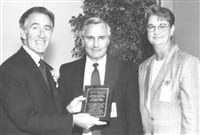Getting to the Heart of the Matter Controlling Your Cholesterol Is a Key to Cardiovascular Health
Q. I don’t have an appointment with my primary-care physician for another six months, but I had a free cholesterol screening recently, and my LDL came back as 192. Should I be worried and call my doctor?
A. Yes. An LDL cholesterol level of 192 is higher than 97{06cf2b9696b159f874511d23dbc893eb1ac83014175ed30550cfff22781411e5} of Americans and represents a significant risk factor for heart disease and stroke. It’s also very treatable, so there is no reason to delay.
Q. My friend has high cholesterol and told me my doctor would likely put me on a statin drug. Aren’t they expensive and come with the risk of many side effects?
A. Statins are no longer expensive, but they do have some side effects. In particular, there are now seven FDA-approved statin medications on the market, but only two are currently patent-protected and expensive. The other five are generic and typically cost less than $10 per month with a co-pay. For example, you can get a 90-day supply of pravastatin from Walmart for $10. That means a year’s supply of a statin would cost only $40 if you paid for it out of pocket. As for the side effects, 90{06cf2b9696b159f874511d23dbc893eb1ac83014175ed30550cfff22781411e5} of patients have none. Even if you do experience some side effects, they are almost always completely reversible. If you have specific questions about a particular side effect, you should talk with your doctor.
Q. From my research on the Internet, I’ve learned there are many different statin medications, should I advocate with my doctor for a certain one?
A. Probably not, unless you already have heart disease. If you already have heart disease or a prior stroke, then you should probably be taking high doses of the high-intensity statins such as rosuvastatin or atorvastatin.
Q. Will I ever be able to come off of the medication?
A. While it is possible to stop taking a stain if you dramatically improve your lifestyle or have weight-loss surgery, most people find they will need to stay on these medications for life in order to keep their cholesterol controlled and avoid a heart attack.
Q. Is high cholesterol familial? My mother had high cholesterol, too. Should I be concerned about my children, who are 33 and 29, and when do they need to be checked?
A. Yes. Unfortunately, there are many people who have high cholesterol levels that were passed on from their parents. In many cases, it has nothing to do with their diet or exercise habits. As for your adult children, it is a very good idea to have their cholesterol checked and treated before it becomes a problem. Additionally, the American Academy of Pediatrics recommends that every child ages 9-12 be screened for cholesterol at least once, although most pediatricians wait until age 18 to begin medications.
Q. I know that eating correctly is important in reducing your bad cholesterol, and so is exercise. But, I’m not one to exercise. What’s your advice?
A. Both of these healthy habits can have an important impact on your cholesterol levels, but the impact is typically smaller than most people think. While some people will get a 40{06cf2b9696b159f874511d23dbc893eb1ac83014175ed30550cfff22781411e5} reduction in blood-cholesterol levels with proper eating and exercise, the typical person only gets about a 10{06cf2b9696b159f874511d23dbc893eb1ac83014175ed30550cfff22781411e5} reduction. This is not to say that exercise and diet are not important, but that their impact on cholesterol levels is typically less than most people assume. Overall, it is important to remember that healthy eating and exercise can produce benefits that improve blood pressure, weight, and waist circumference, depression, anxiety, constipation, osteoporosis, erectile dysfunction, and even knee and other joint pain.
Q. Last year I read about new federal dietary guidelines that were about to be published. The article talked about how cholesterol would be looked at differently and how it’s now OK to eat eggs. What is that all about?
A. Blood cholesterol is still very important, and every person should know their blood-cholesterol numbers. But it turns out that the association between dietary cholesterol and egg intake on blood-cholesterol levels is not as strong as we used to think. And what we do know now is that dietary saturated and trans fats have a much stronger role in determining blood-cholesterol levels. I would still recommend prudence in your egg and dietary cholesterol, but it’s no longer something that needs to be worried much about.
Q. Are there other risk factors I should address?
A. As always, smoking cigarettes is still the number-one cause of preventable death, including heart disease. Quitting smoking is the single most important thing you can do to improve your health.
Q. I saw an article that talked about a new kind of cholesterol drug other than statins. Is this something I should consider?
A. These new drugs are called PCSK-9 inhibitors. There are two that are currently available, and both require injections under the skin every two weeks. Both have only been FDA-approved for about six months, so doctors are only just beginning to understand how to best use these new drugs. The other key thing to know about them is that they typically cost $14,000 year, so insurances are likely to be extremely restrictive about who can use them.
Q. Is it likely that I will develop heart disease because of my cholesterol? I also have diabetes.
A. Most people with diabetes actually die from heart disease, so the combination of diabetes and high cholesterol is particularly worrisome. If you have particular worries or any symptoms, you should talk with your doctor soon. v
Dr. Quinn Pack is a preventive cardiologist in the Heart & Vascular Program at Baystate Medical Center. He sees patients in both Springfield and Florence.




